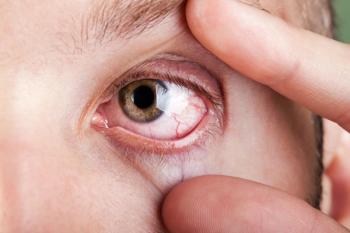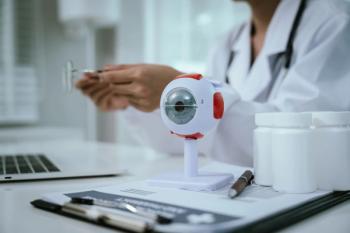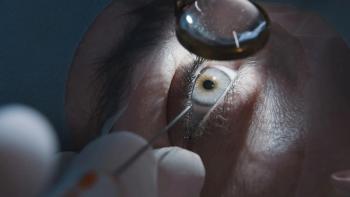
Optometry Times® news summary 12/31/2020
Optometry news updates
With the recent Food & Drug Administration approval of the first U.S. vaccine for COVID-19, the American Optometric Association and its affiliates push to make sure doctors of optometry and the safety of their patients are front and center.
Affiliates are closely coordinating with state authorities to ensure optometry is fully recognized in initial vaccine distribution plans, as well as emphasizing how optometry may be looked upon to boost vaccine administration during this public health emergency.
In a December 2 letter to Secretary of Health and Human Services Alex Azar, AOA President Dr. William Reynolds outlined priorities around the vaccines:
• Fair reimbursement for vaccines
• Not imposing federal restrictions on the types of providers who can give the vaccinations
• Prioritizing optometrists and their staffs for vaccines
In a separate letter to the Centers for Disease Control and Prevention, containing 50 signatures from the AOA, AOA affiliates, and the American Optometric Student Association, Dr. Reynolds reiterated optometry’s role in the pandemic.
The largest retrospective study on children and soft contact lens wear has found very low complication rates in children who wear soft contact lenses, similar to rates in adults. The
The study, titled “Adverse Event Rates in The Retrospective Cohort Study of Safety of Paediatric Soft Contact Lens Wear,” will appear in the January 2021 issue of Ophthalmic & Physiological Optics, the peer-reviewed journal of the UK College of Optometrists. It is currently available in pre-press form via
The study measured the rate of adverse events in children who were prescribed soft contact lenses before they turned 13 years old to establish wearing safety among that age group. The review documented adverse event details from clinical practice charts and clinical trial data of nearly 1,000 children and observed 2,713 years of wear across 4,611 visits.
The study found the annualized incidence rate of inflammatory events was less than 1 percent per year of wear. The majority of events were conjunctivitis or foreign body abrasions, reflective of this young population.
The study found a lower rate of microbial keratitis (7.4 per 10,000 years of wear) with a tighter confidence interval than other pediatric post‐market studies. That rate is comparable to established rates of microbial keratitis in adults, according to investigators.
Surgical and injectable drug approaches are equally effective for treatment of bleeding inside the eye from proliferative diabetic retinopathy, according to a National Eye Institute-supported clinical study from the DRCR Retina Network or DRCR.net.
Researchers compared anti-VEGF eye injections versus removal of blood via vitrectomy surgery and laser photocoagulation. Both treatments improved central vision for the majority of participants, although approximately one-third of the participants needed both anti-VEGF injections and surgery.
The results were published in the Journal of the American Medical Association.
The US Department of Health and Human Services is proposing an overhaul of the Health Insurance Portability and Accountability Act or HIPAA that will make it easier to access patients' personal health information, including the health records of patients with mental illness. The proposal would also do away with the requirement that all patients sign a notice of privacy practices.
HHS says the changes would empower patients, reduce the administrative burden for healthcare providers, and pave the way to better-coordinated care. The agency estimates that the rule could save $3.2 billion over 5 years, but it's not clear how much of that would accrue to clinical practices, according to Medscape.
The most obvious cost-saving aspect for medical and dental practices is the proposal that practitioners would no longer need to provide and collect signed notifications of privacy practices. Under the new proposal, healthcare providers would merely have to let patients know where to find their privacy policies.
The rule would ease the standard for sharing information about a patient who is in a mental health crisis, such as an exacerbation of a serious mental illness or a crisis related to a substance use disorder, including an overdose.
The rule also aims to make it easier for patients to get access to their own healthcare information quickly—within 15 days of a request—instead of the 30 days currently allowed, and sometimes at no cost.
The rule is open for public comment until mid-February. After that, it will become final in 180 days. The agency said it would not begin enforcement until 240 days after the final rule was published.
Tangible Boost from Tangible Science has received FDA clearance and will be commercially available in January 2021. Tangible Boost is a monthly treatment that restores the Tangible Hydra-PEG coating and maintains the wettability of Tangible Hydra-PEG–treated gas permeable contact lenses.
Designed for patients to use at home, Tangible Boost rebuilds the coating, combating normal wear and tear and helping Tangible Hydra-PEG to continue to provide comfortable lens wear, according to the company. Tangible Boostis available through Tangible Science or through a number of custom lens manufacturers including ABB Optical, Acculens, Advanced Vision Technologies, Valley Contax, and X-Cel Specialty Contacts.
The Centre for Ocular Research & Education or CORE has published issue number 57 of its free online education magazine, Contact Lens Update. The latest edition looks at the distinctive events of 2020 through the eyes of 10 front-line practitioners from 10 countries. It is available at ContactLensUpdate.com.
The feature article shows how wearing different types of face masks affects the spread of aerosols and droplets from the mouth and nose when speaking, coughing, and sneezing. An accompanying video shows significant differences in efficacy among different designs of masks.
Also addressed are mask-associated dry eye and the fact that reported increases in dry eye are not confined to adults.
Bruder collaborated with ophthalmic surgeons and comanaging optometrists to develop the Bruder Sx Pre-Surgical Patient Prep Kit. With the introduction of this kit, the hygiene products patients need are available in a single, self-contained kit that doctors can provide directly in their practices or via Bruder’s online portal, designed for pre-surgical patients.
The Bruder Pre-Surgical Prep Kit includes:
• Bruder Hygienic Eyelid Cleansing Wipes
• Bruder Hygienic Eyelid Solution
• Bruder Sx Pre-Surgical Compress and
• Bruder Sx Case to hold the items
The Bruder Sx Pre-Surgical Patient Prep Kit is now available for in-office distribution or patient purchase by referral online.
Mojo Vision and Menicon announced that both companies have entered into a joint development agreement.
Mojo Vision is developing Mojo Lens, a smart contact lens.
Through the agreement, Mojo and Menicon will conduct a series of feasibility studies that tap the expertise of each company—applying Menicon's experience in gas permeable lens R&D and manufacturing to Mojo’s smart contact lens microelectronics, systems integration, and consumer products innovation. Areas of collaboration will center around contact lens materials, cleaning, and fitting, among other topics. If the feasibility studies prove successful, Mojo and Menicon may consider a more extensive working relationship in the future.
According to the company, Mojo Vision is currently developing the world’s first augmented reality or AR smart contact lens, called Mojo Lens. Mojo Lens overlays images, symbols, and text on users’ natural field of vision without obstructing their view, restricting mobility, or hindering social interactions.
Mojo Lens incorporates a number of proprietary technologies, including the smallest and densest dynamic display made; a power-efficient image sensor built for computer vision; a high-bandwidth, low-power wireless radio; and motion sensors for precise eye tracking and image stabilization. Mojo Lens is still in the R&D phase and is not yet available for sale.
Cincinnati Customs and Border Protection conducted a special operation in October focused on unapproved and counterfeit contact lenses and other high-risk regulated commodities imported into the United States. The purpose of this enhanced enforcement was to identify and intercept FDA ophthalmology products and misbranded prescription pharmaceuticals and injectable cosmetics.
Officers found more than 12,100 pairs of undeclared or misdeclared decorative contact lenses, 2,800 capsules of ampicillin, and 198 syringes of counterfeit dermal fillers, Botox, and Dysport. The prohibited items originated from multiple countries, including China, Poland, Germany, Thailand, Hong Kong, and South Korea, and were destined to addresses across the United States. The cumulative Manufacturer’s Suggested Retail Price or MSRP for the prohibited items was $216,856 had they been legally imported.
Neil Retallic has been named as president elect of the British Contact Lens Association or BCLA and will succeed Dr. Indie Grewal after the 2021 BCLA annual general meeting in June.
Retallic says he looks forward to carrying on the good work of previous BCLA presidents. He says he would like to see advances in eco-friendly contact lens products and further work in finding treatments for patients with ocular pathology.
Retallic is European professional services director at Menicon, an assessor and examiner for the College of Optometrists, and is currently part of the General Optical Council’s education committee.
Now, I talk with Chief Optometric Editor Dr. Ben Casella about the contact lens landscape in 2020.
Newsletter
Want more insights like this? Subscribe to Optometry Times and get clinical pearls and practice tips delivered straight to your inbox.





